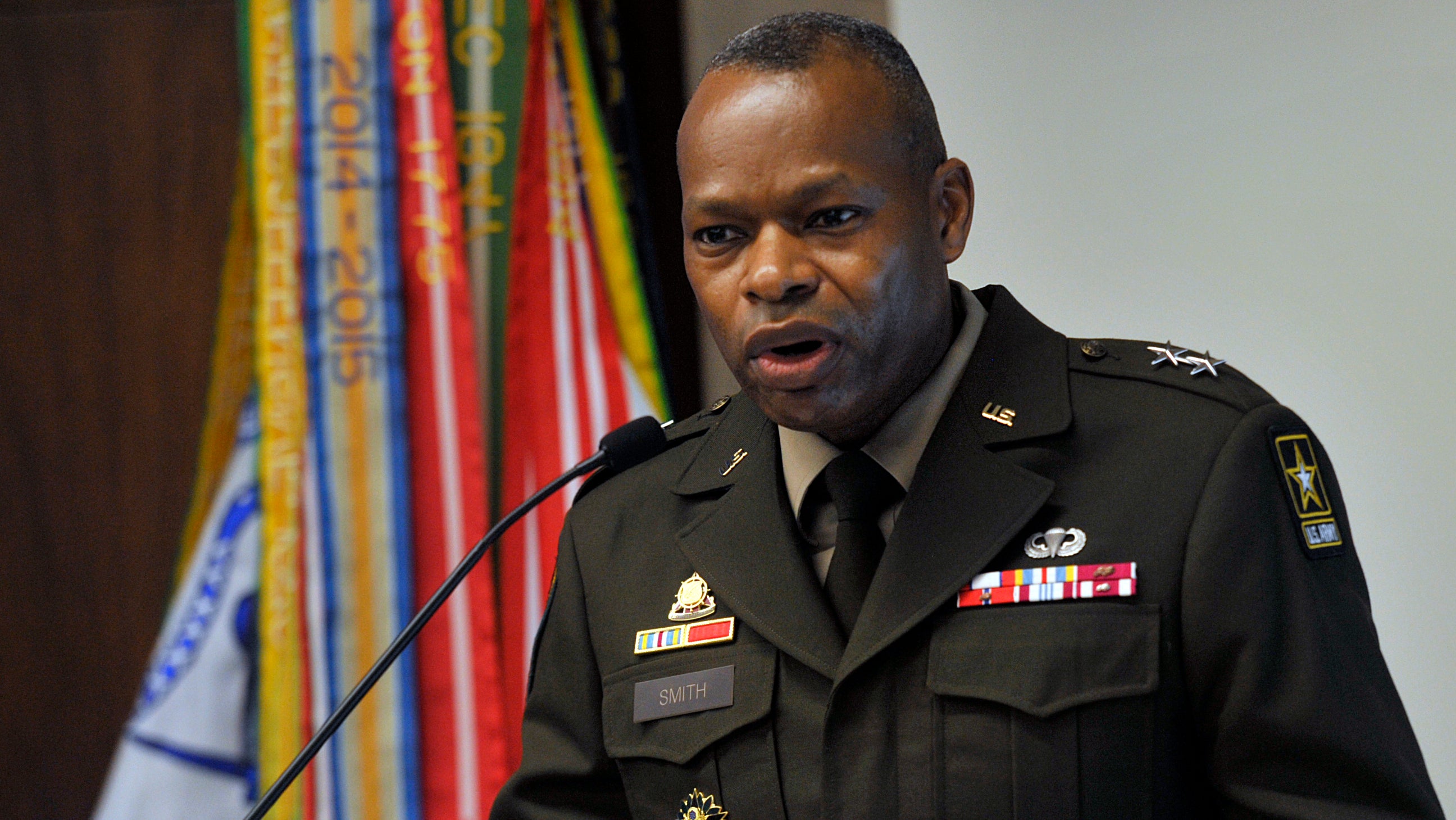Smith: No More ‘Safe Harbor’ for Army Logistics
Smith: No More ‘Safe Harbor’ for Army Logistics

There will be “no safe harbor” anywhere in the world for the Army logistics enterprise as the air, land, sea, space, cyber and information domains are contested by adversaries, a senior Army leader said.
In a contested environment, “we’ll no longer be able to operate unimpeded, and this includes the homeland,” Maj. Gen. James Smith, director of operations for the deputy chief of staff of the Army for logistics, G-4, said Feb. 7 at a Hot Topic forum on contested logistics hosted by the Association of the U.S. Army.
“In short, we’ll have no safe harbor as we execute logistics across the globe,” Smith said. He added that logistics has always been contested, especially at the tactical level, as it was on combat logistics patrols in Iraq and Afghanistan.
But now, more than 20 years into the 21st century, he said, the Army faces a future of multidomain environments in which adversaries will have round-the-clock visibility over U.S. military operations, particularly logistics operations that can be disrupted in myriad ways across the public and private sectors.
“As we continue transitioning our Army from counterinsurgency operations to one prepared to fight large-scale combat operations at echelon, … the sheer scale of what we anticipate from our adversaries as they attempt to impose their will is greater than anything and anybody in this room can ever imagine,” Smith said.
He pointed to China as the pacing threat and Russia as an acute threat, and he said that they and other competitors possess the technological abilities to disrupt and attack Army operations. As such, he said, success in multidomain operations will only work if the logistics community constantly reevaluates and refines concepts and capabilities “at speeds commensurate or faster than our adversaries move on the global sustainment chessboard.”
To meet the expected challenges, the Army must adapt by continuing to modernize its organic industrial base and ensure it is ready and able to sustain the needs of the Army and the joint force, Smith said. The service also must work closely with industry to shape procurements, implement technologically advanced equipment and improve innovations in doing business; strengthen ties and interoperability with allies and partners; and make contested logistics a whole-of-government and whole-of-nation concern.
“These must-dos underpin our ability to ensure our nation is prepared to meet the challenges and complexities we will face in a contested logistics environment,” Smith said.

